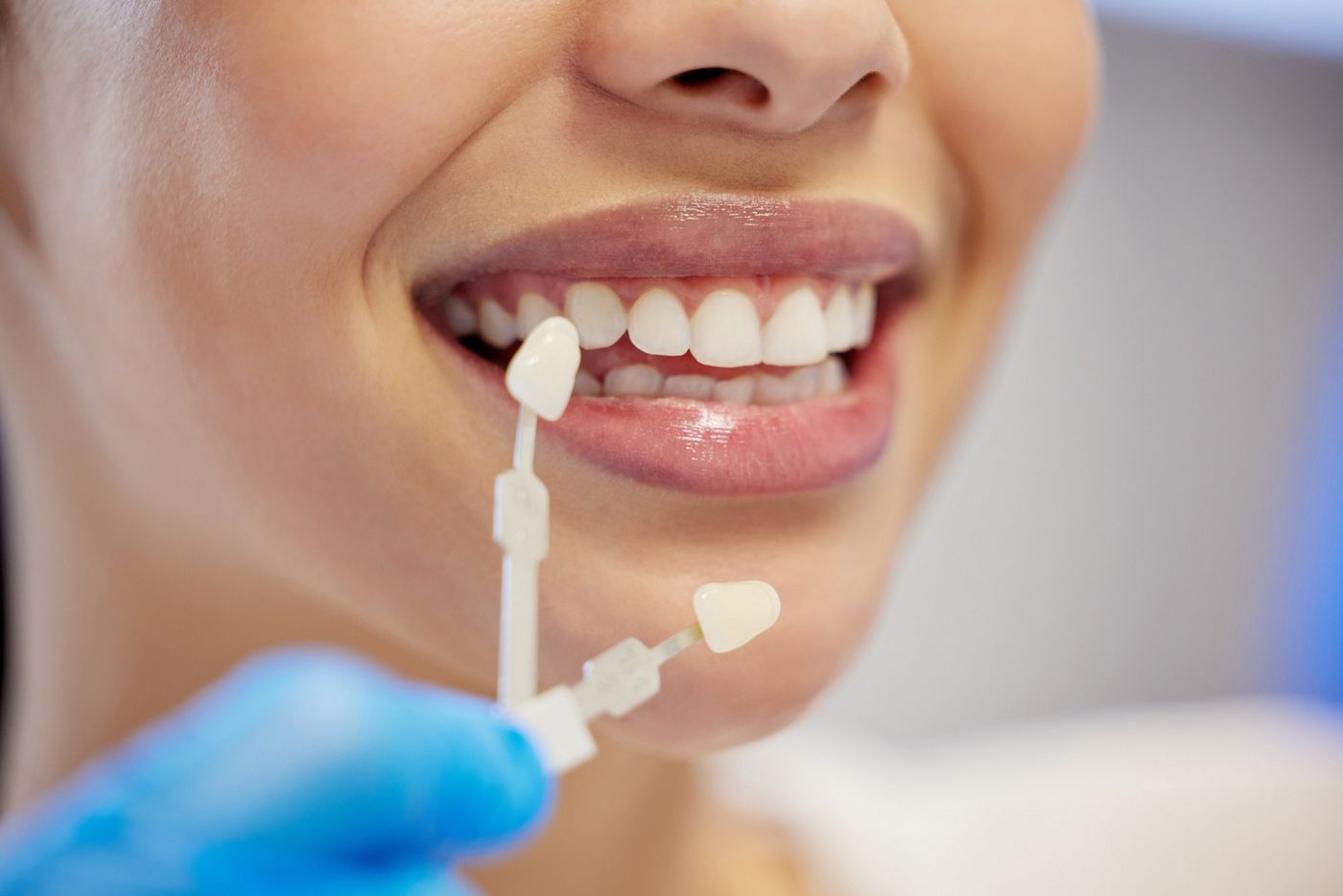Are veneers permanent & how long do they last?
Dental veneers have transformed countless smiles, however, they may not last as long as you expect.
Even though this dental treatment may offer longer-lasting results, veneers are not permanent and will require replacement.
Read on to find out more about the dental veneer lifespan, factors that contribute to the lasting power as well as tips for maintenance to help your veneers last as long as possible!

What are veneers?
Dental veneers are thin shells designed that are custom-made to cover the front surface of teeth, improving their appearance. The most commonly used veneers in the UK are porcelain or composite and are usually done by a cosmetic dentist.
Overall, dental veneers are a versatile and effective cosmetic treatment option for improving the appearance of the smile and boosting self-confidence. With proper care and maintenance, veneers can provide long-lasting results for patients.
To view more information about veneers, read our quick guide on dental veneers which covers the types of veneers, treatment process and other areas of consideration prior to proceeding with the treatment.
Are dental veneers permanent?
No, dental veneers are not permanent and will need to be replaced, with frequency dependent on the types of veneers chosen & patient´s oral health maintenance.
Veneers are considered a semi-permanent dental procedure since they involve the removal of a small amount of tooth enamel to accommodate the veneer.
How long do veneers last?
Porcelain veneers typically last between 10 to 15 years, while composite veneers have a shorter lifespan of 5 to 7 years. The permanence of veneers largely depends on the material used and the patient's dental hygiene practices.
How long do composite veneers last?
Composite veneers typically last about 5 to 7 years before they may need to be replaced, as the composite material is more fragile than porcelain. Maintaining excellent oral hygiene, avoiding hard foods that can chip the veneer, and regular dental check-ups are essential for extending the life of your composite resin veneers.
How long do porcelain veneers last?
Porcelain veneers can last for a significant amount of time, often ranging from 10 to 15 years or even longer with proper oral health care & maintenance. Porcelain veneers are usually chosen by those seeking longevity, with this type of veneer being more cost-effective when comparing the reduced need for replacement. They also are less likely to get chipped/cracked due to the harder material in comparison to composite resin.
What can be done to increase the lifespan of veneers?
To extend the life of your veneers, use the following maintenance tips:
Maintain excellent oral hygiene practices, with frequent brushing and flossing to prevent plaque buildup.
Certain habits, such as nail biting, chewing on hard objects, or using teeth as tools, can damage veneers and reduce their lifespan. Patients should be advised to avoid these habits to preserve the integrity of the veneers.
Use a nightguard if you grind your teeth after having your veneers fitted.
Regular dental check-ups are crucial for ensuring the longevity of veneers.
Choosing a skilled and experienced dental professional for the veneer placement can significantly impact their durability.